
Biasol converts art-deco warehouse in Melbourne into space for its studio
Australian studio Biasol sought to preserve the art deco elements of this warehouse in Melbourne while converting it into a shared studio and office space.
The Gwynne Street Studio is located in the Cremorne suburb of Melbourne – an area that Biasol describes as having a "creative and industrial past".
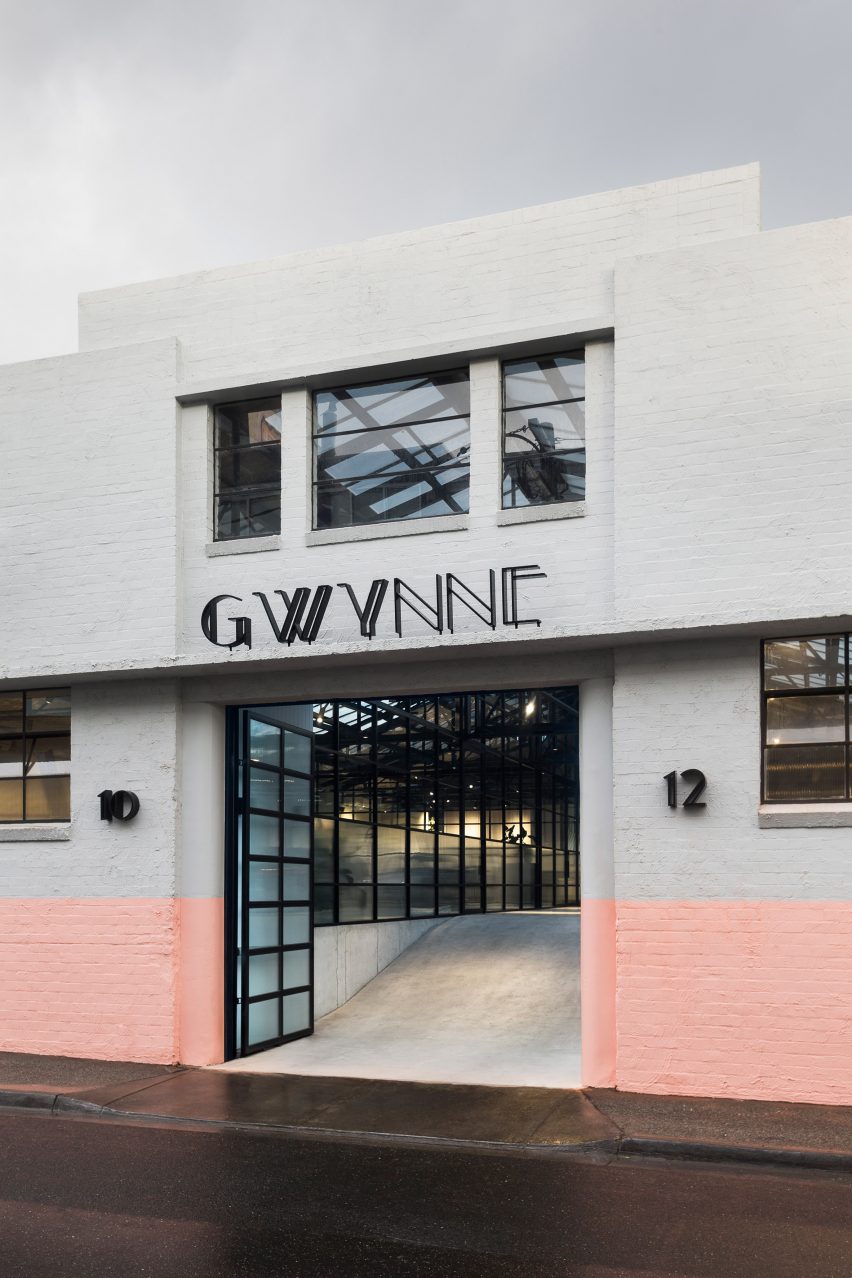
The warehouse building featured an art deco exterior. Inside, exposed brick walls were paired with large steel trusses.
Keen to retain these original features, Biasol simply refreshed the exterior by painting it pink and grey. Steel signage in an art deco-style font was erected on its front, and the interior brickwork was left intact.
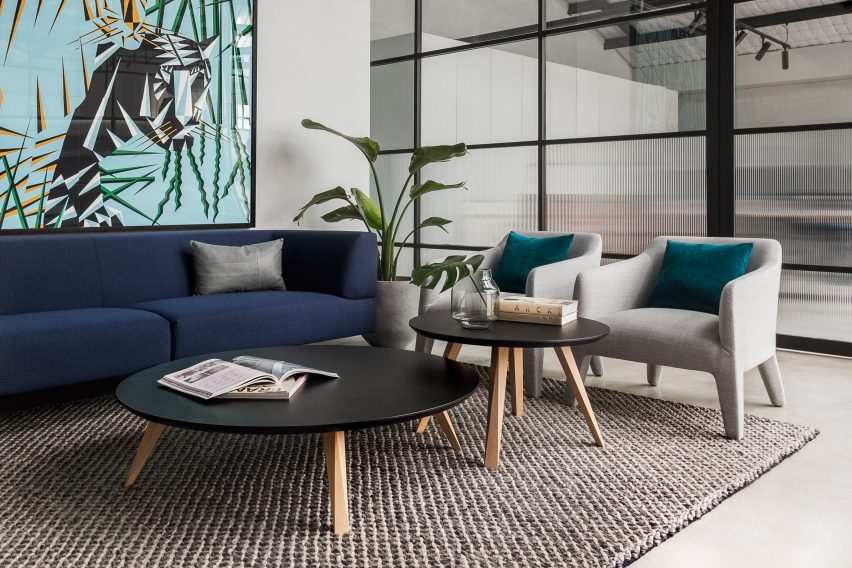
"The warehouse's art deco exterior and the neighbourhood's creative/industrial past provided rich inspiration for our design," said Biasol.
"Once a hub for manufacturing, Cremorne has seen an influx of young professionals, start-ups and creative industries in recent years, breathing new life into its mix of warehouses, factory shells and Victorian cottages."
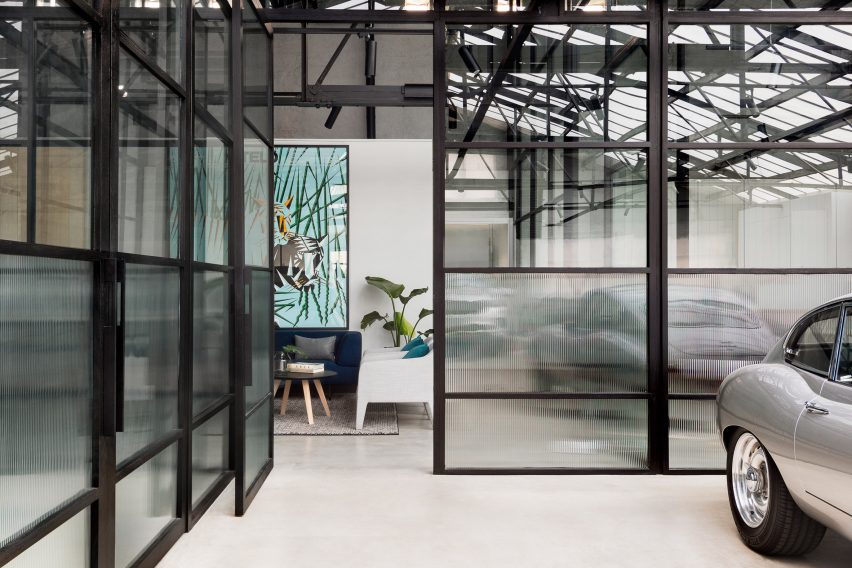
The studio converted the building into a space that would house a new studio for themselves and an office for a local business named Create Company. It also needed to include a shared boardroom and breakout space.
To differentiate the two tenants' areas, the architects used different colour palettes – subtle hues for Biasol's section, and bolder tones for Create Company. Zones are also defined by different types of bespoke furniture, including custom-built work stations.
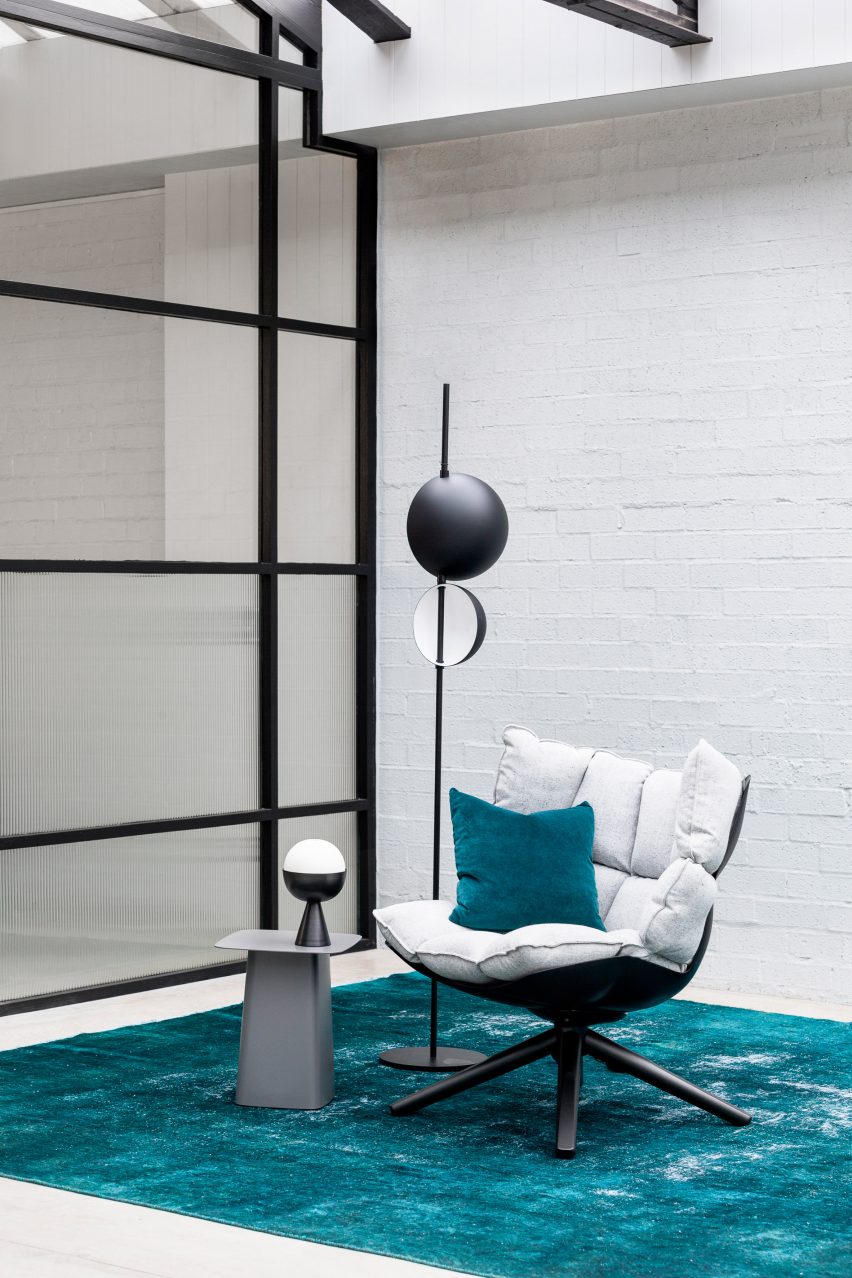
"The design responds to the individual character of the two tenants," said Biasol. "For Biasol, we designed an open-plan studio space that encourages creativity, collaboration and the sharing of ideas. For Create Company, we developed a modern and professional space accented with a rich teal colour."
"The spatial configuration in both offices fosters interaction and collaboration, while providing enough flexibility to accommodate future growth," the studio continued. "The kitchen acts as creative hub for both of the tenancies – filled with a curated collection of art, it is an inviting, almost home-like space."
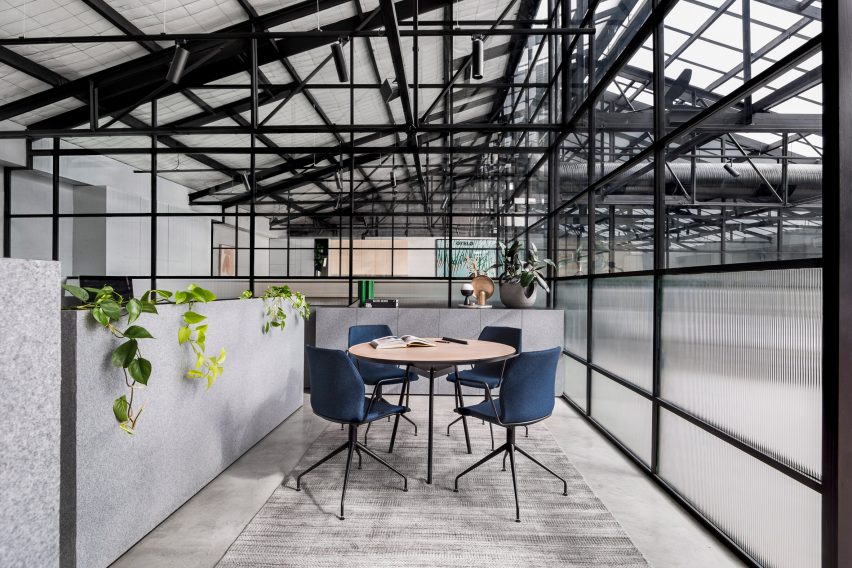
To make sure plenty of light was allowed into the space, a transparent roof was installed, while solid walls were replaced with glazed floor-to-ceiling partitions to create a feeling of "openness".
In areas where more privacy was required, Biasol placed panels of reeded glass.
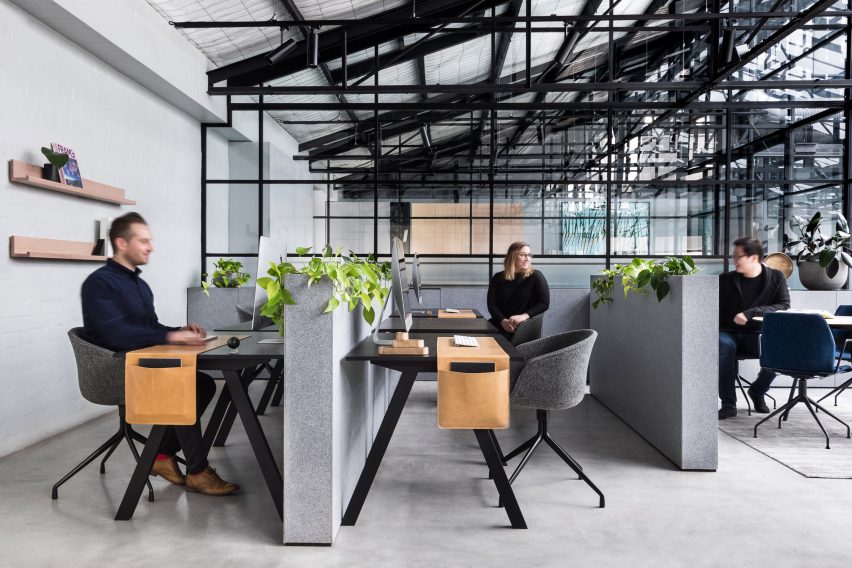
"By using glass partitioning throughout, there is a lightness, a transparency in the interiors that reflect the way we work and the openness and trust we have with our clients," said the architects.
Biasol was founded by Jean-Pierre Biasol in 2012. The studio works across interior, product and branding design, and has completed projects in London and Melbourne – including a marble and velvet outpost of coffee bar chain Grind & Co and a pale concrete cafe called No 19.
Photography is by Ari Hatzis.